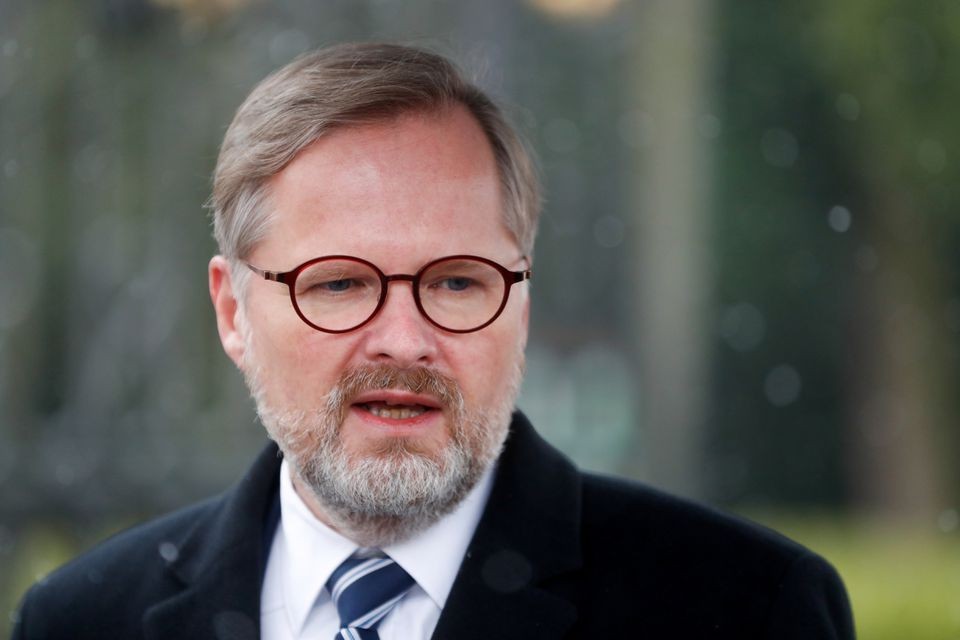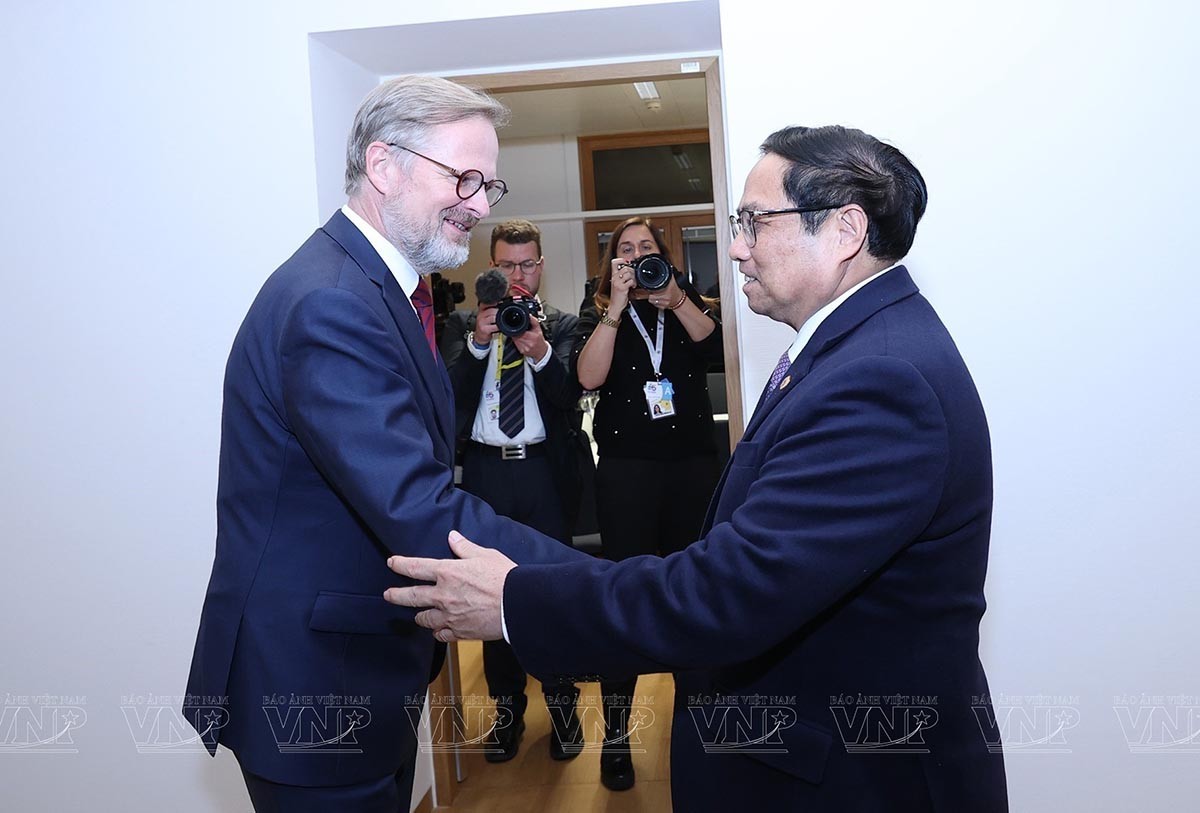
Czech PM’s visit to Vietnam generates new impetus to bilateral relations
Latest
 |
| At the invitation of Prime Minister Pham Minh Chinh, Czech Republic Prime Minister Petr Fiala will pay an official visit to Vietnam from April 20-22. (Photo: Reuters) |
At the invitation of Prime Minister Pham Minh Chinh, Czech Republic Prime Minister Petr Fiala will pay an official visit to Vietnam from April 20-22.
This is the first trip to visit by Petr Fiala since he took office in late 2021 and the first visit of a head of the Czech Government to Vietnam over the past 15 years.
The visit take place in the context that the traditional friendship and multifaceted cooperation relations between Vietnam and the Czech Republic have seen positive developments since the two countries established diplomatic ties in 1950.
Both countries have maintained regular contacts at all levels. Most recently, PM Chinh met PM Petr Fiala in Belgium on the sidelines of the ASEAN-EU Commemorative Summit in December, 2022. Previously, the PM of had a phone conversation in August 2021.
Vietnam and the Czech Republic have signed 14 cooperation agreements in various fields, including employment, economics, trade, aviation cooperation, avoidance of double taxation. Notably, the two sides signed a Memorandum of Understanding on defence-security cooperation in 2012.
The two countries have close coordination at regional and international forums. The Czech Republic supported Vietnam’s candidacy for the UNSC non-permanent membership for the 2020 - 2021 term. It was also one of the first EU member states to ratify the EU-Vietnam Free Trade Agreement (EVFTA) and the Vietnam-EU Investment Protection Agreement (EVIPA).
Two-way trade has grown in recent years but is still modest compared to the two countries’ potential. In 2022, two-way trade turnover reached 848 million USD, up 15% year-on-year.
As of 2022, the Czech Republic has 41 FDI projects in Vietnam with a total capital of 92 million USD, mainly in the processing, manufacturing and mining.
In terms of development cooperation, the Czech Republic was the first Eastern European country to provide ODA to Vietnam, with about 20 million USD in total. Since 2013, it has not placed Vietnam in the list of ODA development aid recipients due to the country’s economic development progress.
 |
| PM Chinh met PM Petr Fiala in Belgium on the sidelines of the ASEAN-EU Commemorative Summit in December, 2022. (Photo: VNA) |
Education and training is another potential field for cooperation between the two countries. The two sides have encouraged their educational institutions to establish partnerships and expand cooperation.
The Czech Republic has trained thousands of Vietnamese officials, engineers, and workers sent to the central European state under cooperation agreements in the past. It granted scholarships and received Vietnamese students to study in the 1999 to 2014 period.
To deal with labour shortages, the Czech Republic has received skilled guest workers, including those from Vietnam, especially in the healthcare sector. It has established vocational training institutions to support Vietnamese workers in improving their skills in fields such as mechanical engineering and the automobile industry to supplement its skilled workforce for the country.
There are approximately 100,000 Vietnamese people living, working, and studying in the central European nation. Vietnamese expatriates are highly appreciated by the Czech Government due for their practical contributions to local society. On July 3, 2013, the Czech Government decided to add Vietnamese-Czech people to its Council of Ethnic Minorities, thereby recognising Vietnamese-Czech people as an ethnic minority group in the country.
The two sides have also agreed to further strengthen cooperation in agriculture, science-technology, the environment, climate change response, energy, and human resources development in the digital era, culture, tourism, and justice.
The upcoming visit to Vietnam by Czech Prime Minister Petr Fiala shows the importance his country attaches to strengthening the bilateral relations.
During Fiala’s visit, the two sides are expected to outline orientations for future co-operation in potential areas such as economics, trade, investment, energy, environment, automobile assembly, as well as the effective implementation of the EVFTA.

















